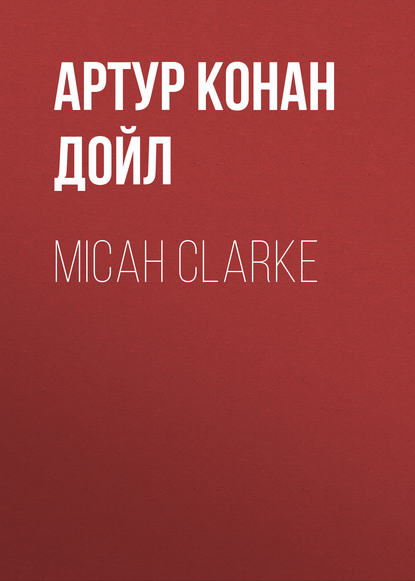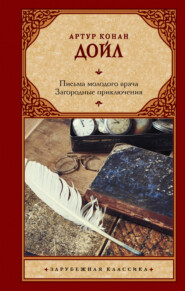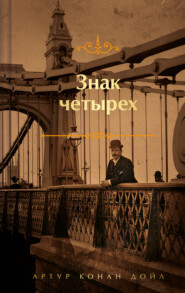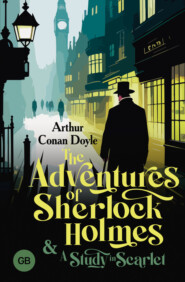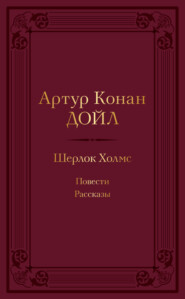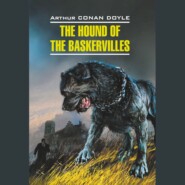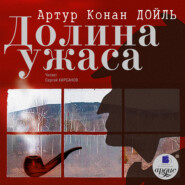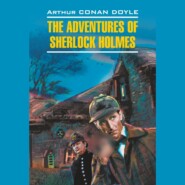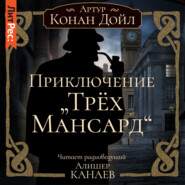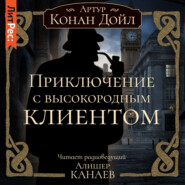По всем вопросам обращайтесь на: info@litportal.ru
(©) 2003-2024.
✖
Micah Clarke
Настройки чтения
Размер шрифта
Высота строк
Поля
But wonderful as was the sight, there was, as ye may guess, my dears, little time for us to gaze upon it. Saxon and the German flung themselves among the pikemen and did all that men could do to thicken their array. Sir Gervas and I did the same with the scythesmen, who had been trained to form a triple front after the German fashion, one rank kneeling, one stooping, and one standing erect, with weapons advanced. Close to us the Taunton men had hardened into a dark sullen ring, bristling with steel, in the centre of which might be seen and heard their venerable Mayor, his long beard fluttering in the breeze, and his strident voice clanging over the field. Louder and louder grew the roar of the horse. ‘Steady, my brave lads,’ cried Saxon, in trumpet tones. ‘Dig the pike-butt into the earth! Best it on the right foot! Give not an inch! Steady!’ A great shout went up from either side, and then the living wave broke over us.
What hope is there to describe such a scene as that – the crashing of wood, the sharp gasping cries, the snorting of horses, the jar when the push of pike met with the sweep of sword! Who can hope to make another see that of which he himself carries away so vague and dim an impression? One who has acted in such a scene gathers no general sense of the whole combat, such as might be gained by a mere onlooker, but he has stamped for ever upon his mind just the few incidents which may chance to occur before his own eyes. Thus my memories are confined to a swirl of smoke with steel caps and fierce, eager faces breaking through it, with the red gaping nostrils of horses and their pawing fore-feet as they recoiled from the hedge of steel. I see, too, a young beardless lad, an officer of dragoons, crawling on hands and knees under the scythes, and I hear his groan as one of the peasants pinned him to the ground. I see a bearded, broad-faced trooper riding a grey horse just outside the fringe of the scythes, seeking for some entrance, and screaming the while with rage. Small things imprint themselves upon a man’s notice at such a time. I even marked the man’s strong white teeth and pink gums. At the same time I see a white-faced, thin-lipped man leaning far forward over his horse’s neck and driving at me with his sword point, cursing the while as only a dragoon can curse. All these images start up as I think of that fierce rally, during which I hacked and cut and thrust at man and horse without a thought of parry or of guard. All round rose a fierce babel of shouts and cries, godly ejaculations from the peasants and oaths from the horsemen, with Saxon’s voice above all imploring his pikemen to stand firm. Then the cloud of horse-men recoiled, circling off over the plain, and the shout of triumph from my comrades, and an open snuff-box thrust out in front of me, proclaimed that we had seen the back of as stout a squadron as ever followed a kettledrum.
But if we could claim it as a victory, the army in general could scarce say as much. None but the very pick of the troops could stand against the flood of heavy horses and steel-clad men. The Frome peasants were gone, swept utterly from the field. Many had been driven by pure weight and pressure into the fatal mud which had checked our advance. Many others, sorely cut and slashed, lay in ghastly heaps all over the ground which they had held. A few by joining our ranks had saved themselves from the fate of their companions. Further off the men of Taunton still stood fast, though in sadly diminished numbers. A long ridge of horses and cavaliers in front of them showed how stern had been the attack and how fierce the resistance. On our left the wild miners had been broken at the first rush, but had fought so savagely, throwing themselves upon the ground and stabbing upwards at the stomachs of the horses, that they had at last beaten off the dragoons. The Devonshire militiamen, however, had been scattered, and shared the fate of the men of Frome. During the whole of the struggle the foot upon the further bank of the Bussex Rhine were pouring in a hail of bullets, which our musqueteers, having to defend themselves against the horse, were unable to reply to.
It needed no great amount of soldierly experience to see that the battle was lost, and that Monmouth’s cause was doomed. It was broad daylight now, though the sun had not yet risen. Our cavalry was gone, our ordnance was silent, our line was pierced in many places, and more than one of our regiments had been destroyed. On the right flank the Horse Guards Blue, the Tangiers Horse, and two dragoon regiments were forming up for a fresh attack. On the left the foot-guards had bridged the ditch and were fighting hand to hand with the men from North Somerset. In front a steady fire was being poured into us, to which our reply was feeble and uncertain, for the powder carts had gone astray in the dark, and many were calling hoarsely for ammunition, while others were loading with pebbles instead of ball. Add to this that the regiments which still held their ground had all been badly shaken by the charge, and had lost a third of their number. Yet the brave clowns sent up cheer after cheer, and shouted words of encouragement and homely jests to each other, as though a battle were but some rough game which must as a matter of course be played out while there was a player left to join in it.
‘Is Captain Clarke there?’ cried Decimus Saxon, riding up with his sword-arm flecked with blood. ‘Ride over to Sir Stephen Timewell and tell him to join his men to ours. Apart we shall be broken – together we may stand another charge.’
Setting spurs to Covenant I rode over to our companions and delivered the message. Sir Stephen, who had been struck by a petronel bullet, and wore a crimsoned kerchief bound round his snow-white head, saw the wisdom of the advice, and moved his townsmen as directed. His musqueteers being better provided with powder than ours did good service by keeping down for a time the deadly fire from across the fosse.
‘Who would have thought it of him?’ cried Sir Stephen, with flashing eyes, as Buyse and Saxon rode out to meet him. ‘What think ye now of our noble monarch, our champion of the Protestant cause?’
‘He is no very great Krieger,’ said Buyse. ‘Yet perhaps it may be from want of habit as much as from want of courage.’
‘Courage!’ cried the old Mayor, in a voice of scorn. ‘Look over yonder and behold your King.’ He pointed out over the moor with a finger which shook as much from anger as from age. There, far away, showing up against the dark peat-coloured soil, rode a gaily-dressed cavalier, followed by a knot of attendants, galloping as fast as his horse would carry him from the field of battle. There was no mistaking the fugitive. It was the recreant Monmouth.
‘Hush!’ cried Saxon, as we all gave a cry of horror and execration; ‘do not dishearten our brave lads! Cowardice is catching and will run through an army like the putrid fever.’
‘Der Feigherzige!’ cried Buyse, grinding his teeth. ‘And the brave country folk! It is too much.’
‘Stand to your pikes, men!’ roared Saxon, in a voice of thunder, and we had scarce time to form our square and throw ourselves inside of it, before the whirlwind of horse was upon us once more. When the Taunton men had joined us a weak spot had been left in our ranks, and through this in an instant the Blue Guards smashed their way, pouring through the opening, and cutting fiercely to right and left. The burghers on the one side and our own men on the other replied by savage stabs from their pikes and scythes, which emptied many a saddle, but while the struggle was at its hottest the King’s cannon opened for the first time with a deafening roar upon the other side of the rhine, and a storm of balls ploughed their way through our dense ranks, leaving furrows of dead and wounded behind them. At the same moment a great cry of ‘Powder! For Christ’s sake, powder!’ arose from the musqueteers whose last charge had been fired. Again the cannon roared, and again our men were mowed down as though Death himself with his scythe were amongst us. At last our ranks were breaking. In the very centre of the pikemen steel caps were gleaming, and broadswords rising and falling. The whole body was swept back two hundred paces or more, struggling furiously the while, and was there mixed with other like bodies which had been dashed out of all semblance of military order, and yet refused to fly. Men of Devon, of Dorset, of Wiltshire, and of Somerset, trodden down by horse, slashed by dragoons, dropping by scores under the rain of bullets, still fought on with a dogged, desperate courage for a ruined cause and a man who had deserted them. Everywhere as I glanced around me were set faces, clenched teeth, yells of rage and defiance, but never a sound of fear or of submission. Some clambered up upon the cruppers of the riders and dragged them backwards from their saddles. Others lay upon their faces and hamstrung the chargers with their scythe-blades, stabbing the horsemen before they could disengage themselves. Again and again the guards crashed through them from side to side, and yet the shattered ranks closed up behind them and continued the long-drawn struggle. So hopeless was it and so pitiable that I could have found it in my heart to wish that they would break and fly, were it not that on the broad moor there was no refuge which they could make for. And all this time, while they struggled and fought, blackened with powder and parched with thirst, spilling their blood as though it were water, the man who called himself their King was spurring over the countryside with a loose rein and a quaking heart, his thoughts centred upon saving his own neck, come what might to his gallant followers.
Large numbers of the foot fought to the death, neither giving nor receiving quarter; but at last, scattered, broken, and without ammunition, the main body of the peasants dispersed and fled across the moor, closely followed by the horse. Saxon, Buyse, and I had done all that we could to rally them once more, and had cut down some of the foremost of the pursuers, when my eye fell suddenly upon Sir Gervas, standing hatless with a few of his musqueteers in the midst of a swarm of dragoons. Spurring our horses we cut a way to his rescue, and laid our swords about us until we had cleared off his assailants for the moment.
‘Jump up behind me!’ I cried. ‘We can make good our escape.’
He looked up smiling and shook his head. ‘I stay with my company,’ said he.
‘Your company!’ Saxon cried. ‘Why, man, you are mad! Your company is cut off to the last man.’
‘That’s what I mean,’ he answered, flicking some dirt from his cravat. ‘Don’t ye mind! Look out for yourselves. Goodbye, Clarke! Present my compliments to – ’ The dragoons charged down upon us again. We were all borne backwards, fighting desperately, and when we could look round the Baronet was gone for ever. We heard afterwards that the King’s troops found upon the field a body which they mistook for that of Monmouth, on account of the effeminate grace of the features and the richness of the attire. No doubt it was that of our undaunted friend, Sir Gervas Jerome, a name which shall ever be dear to my heart. When, ten years afterwards, we heard much of the gallantry of the young courtiers of the household of the French King, and of the sprightly courage with which they fought against us in the Lowlands at Steinkirk and elsewhere, I have always thought, from my recollection of Sir Gervas, that I knew what manner of men they were.
And now it was every man for himself. In no part of the field did the insurgents continue to resist. The first rays of the sun shining slantwise across the great dreary plain lit up the long line of the scarlet battalions, and glittered upon the cruel swords which rose and fell among the struggling drove of resistless fugitives. The German had become separated from us in the tumult, and we knew not whether he lived or was slain, though long afterwards we learned that he made good his escape, only to be captured with the ill-fated Duke of Monmouth. Grey, Wade, Ferguson, and others had contrived also to save themselves, while Stephen Timewell lay in the midst of a stern ring of his hard-faced burghers, dying as he had lived, a gallant Puritan Englishman. All this we learned afterwards. At present we rode for our lives across the moor, followed by a few scattered bodies of horse, who soon abandoned their pursuit in order to fasten upon some more easy prey.
We were passing a small clump of alder bushes when a loud manly voice raised in prayer attracted our attention. Pushing aside the branches, we came upon a man, seated with his back up against a great stone, cutting at his own arm with a broad-bladed knife, and giving forth the Lord’s prayer the while, without a pause or a quiver in his tone. As he glanced up from his terrible task we both recognised him as one Hollis, whom I have mentioned as having been with Cromwell at Dunbar. His arm had been half severed by a cannon-ball, and he was quietly completing the separation in order to free himself from the dangling and useless limb. Even Saxon, used as he was to all the forms and incidents of war, stared open-eyed and aghast at this strange surgery; but the man, with a short nod of recognition, went grimly forward with his task, until, even as we gazed, he separated the last shred which held it, and lay over with blanched lips which still murmured the prayer.[1 - The incident is historically true, and may serve to show what sort of men they were who had learned their soldiering under Cromwell.] We could do little to help him, and, indeed, might by our halt attract his pursuers to his hiding-place; so, throwing him down my flask half filled with water, we hastened on upon our way. Oh, war, my children, what a terrible thing it is! How are men cozened and cheated by the rare trappings and prancing steeds, by the empty terms of honour and of glory, until they forget in the outward tinsel and show the real ghastly horror of the accursed thing! Think not of the dazzling squadrons, nor of the spirit-stirring blare of the trumpets, but think of that lonely man under the shadow of the alders, and of what he was doing in a Christian age and a Christian land. Surely I, who have grown grey in harness, and who have seen as many fields as I have years of my life, should be the last to preach upon this subject, and yet I can clearly see that, in honesty, men must either give up war, or else they must confess that the words of the Redeemer are too lofty for them, and that there is no longer any use in pretending that His teaching can be reduced to practice. I have seen a Christian minister blessing a cannon which had just been founded, and another blessing a war-ship as it glided from the slips. They, the so-called representatives of Christ, blessed these engines of destruction which cruel man has devised to destroy and tear his fellow-worms. What would we say if we read in Holy Writ of our Lord having blessed the battering-rams and the catapults of the legions? Would we think that it was in agreement with His teaching? But there! As long as the heads of the Church wander away so far from the spirit of its teaching as to live in palaces and drive in carriages, what wonder if, with such examples before them, the lower clergy overstep at times the lines laid down by their great Master?
Looking back from the summit of the low hills which lie to the westward of the moor, we could see the cloud of horse-men streaming over the bridge of the Parret and into the town of Bridgewater, with the helpless drove of fugitives still flying in front of them. We had pulled up our horses, and were looking sadly and silently back at the fatal plain, when the thud of hoofs fell upon our ears, and, turning round, we found two horsemen in the dress of the guards riding towards us. They had made a circuit to cut us off, for they were riding straight for us with drawn swords and eager gestures.
‘More slaughter,’ I said wearily. ‘Why will they force us to it?’
Saxon glanced keenly from beneath his drooping lids at the approaching horsemen, and a grim smile wreathed his face in a thousand lines and wrinkles.
‘It is our friend who set the hounds upon our track at Salisbury,’ he said. ‘This is a happy meeting. I have a score to settle with him.’
It was, indeed, the hot-headed young comet whom we had met at the outset of our adventures. Some evil chance had led him to recognise the tall figure of my companion as we rode from the field, and to follow him, in the hope of obtaining revenge for the humiliation which he had met with at his hands. The other was a lance-corporal, a man of square soldierly build, riding a heavy black horse with a white blaze upon its forehead.
Saxon rode slowly towards the officer, while the trooper and I fixed our eyes upon each other.
‘Well, boy,’ I heard my companion say, ‘I trust that you have learned to fence since we met last.’
The young guardsman gave a snarl of rage at the taunt, and an instant afterwards the clink of their sword-blades showed that they had met. For my own part I dared not spare a glance upon them, for my opponent attacked me with such fury that it was all that I could do to keep him off. No pistol was drawn upon either side. It was an honest contest of steel against steel. So constant were the corporal’s thrusts, now at my face, now at my body, that I had never an opening for one of the heavy cuts which might have ended the matter. Our horses spun round each other, biting and pawing, while we thrust and parried, until at last, coming together knee to knee, we found ourselves within sword-point, and grasped each other by the throat. He plucked a dagger from his belt and struck it into my left arm, but I dealt him a blow with my gauntleted hand, which smote him off his horse and stretched him speechless upon the plain. Almost at the same moment the cornet dropped from his horse, wounded in several places. Saxon sprang from his saddle, and picking the soldier’s dagger from the ground, would have finished them both had I not jumped down also and restrained him. He flashed round upon me with so savage a face that I could see that the wild-beast nature within him was fairly roused.
‘What hast thou to do?’ he snarled. ‘Let go!’
‘Nay, nay! Blood enough hath been shed,’ said I. ‘Let them lie.’
‘What mercy would they have had upon us?’ he cried passionately, struggling to get his wrist free. ‘They have lost, and must pay forfeit.’
‘Not in cold blood,’ I said firmly. ‘I shall not abide it.’
‘Indeed, your lordship,’ he sneered, with the devil peeping out through his eyes. With a violent wrench he freed himself from my grasp, and springing back, picked up the sword which he had dropped.
‘What then?’ I asked, standing on my guard astride of the wounded man.
He stood for a minute or more looking at me from under his heavy-hung brows, with his whole face writhing with passion. Every instant I expected that he would fly at me, but at last, with a gulp in his throat, he sheathed his rapier with a sharp clang, and sprang back into the saddle.
‘We part here,’ he said coldly. ‘I have twice been on the verge of slaying you, and the third time might be too much for my patience. You are no fit companion for a cavalier of fortune. Join the clergy, lad; it is your vocation.’
‘Is this Decimus Saxon who speaks, or is it Will Spotterbridge?’ I asked, remembering his jest concerning his ancestry, but no answering smile came upon his rugged face. Gathering up his bridle in his left hand, he shot one last malignant glance at the bleeding officer, and galloped off along one of the tracks which lead to the southward. I stood gazing after him, but he never sent so much as a hand-wave back, riding on with a rigid neck until he vanished in a dip in the moor.
‘There goes one friend,’ thought I sadly, ‘and all forsooth because I will not stand by and see a helpless man’s throat cut. Another friend is dead on the field. A third, the oldest and dearest of all, lies wounded at Bridgewater, at the mercy of a brutal soldiery. If I return to my home I do but bring trouble and danger to those whom I love. Whither shall I turn?’ For some minutes I stood irresolute beside the prostrate guardsmen, while Covenant strolled slowly along cropping the scanty herbage, and turning his dark full eyes towards me from time to time, as though to assure me that one friend at least was steadfast. Northward I looked at the Polden Hills, southwards, at the Blackdowns, westward at the long blue range of the Quantocks, and eastward at the broad fen country; but nowhere could I see any hope of safety. Truth to say, I felt sick at heart and cared little for the time whether I escaped or no.
A muttered oath followed by a groan roused me from my meditations. The corporal was sitting up rubbing his head with a look of stupid astonishment upon his face, as though he were not very sure either of where he was or how he came there. The officer, too, had opened his eyes and shown other signs of returning consciousness. His wounds were clearly of no very serious nature. There was no danger of their pursuing me even should they wish to do so, for their horses had trotted off to join the numerous other riderless steeds who were wandering all over the moorlands. I mounted, therefore, and rode slowly away, saving my good charger as much as possible, for the morning’s work had already told somewhat heavily upon him.
There were many scattered bodies of horse riding hither and thither over the marshes, but I was able to avoid them, and trotted onwards, keeping to the waste country until I found myself eight or ten miles from the battlefield. The few cottages and houses which I passed wore deserted, and many of them bore signs of having been plundered. Not a peasant was to be seen. The evil fame of Kirke’s lambs had chased away all those who had not actually taken arms. At last, after riding for three hours, I bethought me that I was far enough from the main line of pursuit to be free from danger, so I chose out a sheltered spot where a clump of bushes overhung a little brook. There, seated upon a bank of velvet moss, I rested my weary limbs, and tried to wash the stains of battle from my person.
It was only now when I could look quietly at my own attire that it was brought home to me how terrible the encounter must have been in which I had been engaged, and how wonderful it was that I had come off so scatheless. Of the blows which I had struck in the fight I had faint remembrance, yet they must have been many and terrible, for my sword edge was as jagged and turned as though I had hacked for an hour at an iron bar. From head to foot I was splashed and crimsoned with blood, partly my own, but mostly that of others. My headpiece was dinted with blows. A petronel bullet had glanced off my front plate, striking it at an angle, and had left a broad groove across it. Two or three other cracks and stars showed where the good sheet of proof steel had saved me. My left arm was stiff and well-nigh powerless from the corporal’s stab, but on stripping off my doublet and examining the place, I found that though there had been much bleeding the wound was on the outer side of the bone, and was therefore of no great import. A kerchief dipped in water and bound tightly round it eased the smart and stanched the blood. Beyond this scratch I had no injuries, though from my own efforts I felt as stiff and sore all over as though I had been well cudgelled, and the slight wound got in Wells Cathedral had reopened and was bleeding. With a little patience and cold water, however, I was able to dress it and to tie myself up as well as any chirurgeon in the kingdom.
Having seen to my injuries I had now to attend to my appearance, for in truth I might have stood for one of those gory giants with whom the worthy Don Bellianis of Greece and other stout champions were wont to contend. No woman or child but would have fled at the sight of me, for I was as red as the parish butcher when Martinmas is nigh. A good wash, however, in the brook soon removed those traces of war, and I was able to get the marks off my breastplate and boots. In the case of my clothes, however, it was so hopeless to clean them that I gave it up in despair. My good old horse had been never so much as grazed by steel or bullet, so that with a little watering and tending he was soon as fresh as ever, and we turned our backs on the streamlet a better-favoured pair than we had approached it.
It was now going on to mid-day, and I began to feel very hungry, for I had tasted nothing since the evening before. Two or three houses stood in a cluster upon the moor, but the blackened walls and scorched thatch showed that it was hopeless to expect anything from them. Once or twice I spied folk in the fields or on the roadway; but at sight of an armed horseman they ran for their lives, diving into the brushwood like wild animals. At one place, where a high oak tree marked the meeting of three roads, two bodies dangling from one of the branches showed that the fears of the villagers were based upon experience. These poor men had in all likelihood been hanged because the amount of their little hoardings had not come up to the expectations of their plunderers; or because, having given all to one band of robbers, they had nothing with which to appease the next. At last, when I was fairly weary of my fruitless search for food, I espied a windmill standing upon a green hill at the other side of some fields. Judging from its appearance that it had escaped the general pillage, I took the pathway which branched away to it from the high-road. (Note J, Appendix)
Chapter XXXIII. Of my Perilous Adventure at the Mill
At the base of the mill there stood a shed which was evidently used to stall the horses which brought the farmers’ grain. Some grass was heaped up inside it, so I loosened Covenant’s girths and left him to have a hearty meal. The mill itself appeared to be silent and empty. I climbed the steep wood ladder, and pushing the door open, walked into a round stone-flagged room, from which a second ladder led to the loft above. On one side of this chamber was a long wooden box, and all round the walls were ranged rows of sacks full of flour. In the fireplace stood a pile of faggots ready for lighting, so with the aid of my tinder-box I soon had a cheerful blaze. Taking a large handful of flour from the nearest bag I moistened it with water from a pitcher, and having rolled it out into a flat cake, proceeded to bake it, smiling the while to think of what my mother would say to such rough cookery. Very sure I am that Patrick Lamb himself, whose book, the ‘Complete Court Cook,’ was ever in the dear soul’s left hand while she stirred and basted with her right, could not have turned out a dish which was more to my taste at the moment, for I had not even patience to wait for the browning of it, but snapped it up and devoured it half hot. I then rolled a second one, and having placed it before the fire, and drawn my pipe from my pocket, I set myself to smoke, waiting with all the philosophy which I could muster until it should be ready.
I was lost in thought, brooding sadly over the blow which the news would be to my father, when I was startled by a loud sneeze, which sounded as though it were delivered in my very ear. I started to my feet and gazed all round me, but there was nothing save the solid wall behind and the empty chamber before. I had almost come to persuade myself that I had been the creature of some delusion, when again a crashing sneeze, louder and more prolonged than the last, broke upon the silence. Could some one be hid in one of the bags? Drawing my sword I walked round pricking the great flour sacks, but without being able to find cause for the sound. I was still marvelling over the matter when a most extraordinary chorus of gasps, snorts, and whistles broke out, with cries of ‘Oh, holy mother!’ ‘Blessed Redeemer!’ and other such exclamations. This time there could be no doubt as to whence the uproar came. Rushing up to the great chest upon which I had been seated, I threw back the heavy lid and gazed in.
It was more than half full of flour, in the midst of which was floundering some creature, which was so coated and caked with the white powder, that it would have been hard to say that it was human were it not for the pitiable cries which it was uttering. Stooping down I dragged the man from his hiding-place, when he dropped upon his knees upon the floor and yelled for mercy, raising such a cloud of dust from every wriggle of his body that I began to cough and to sneeze. As the skin of powder began to scale off from him, I saw to my surprise that he was no miller or peasant, but was a man-at-arms, with a huge sword girt to his side, looking at present not unlike a frosted icicle, and a great steel-faced breastplate. His steel cap had remained behind in the flour-bin, and his bright red hair, the only touch of colour about him, stood straight up in the air with terror, as he implored me to spare his life. Thinking that there was something familiar about his voice, I drew my hand across his face, which set him yelling as though I had slain him. There was no mistaking the heavy cheeks and the little greedy eyes. It was none other than Master Tetheridge, the noisy town-clerk of Taunton.
But how much changed from the town-clerk whom we had seen strutting, in all the pomp and bravery of his office, before the good Mayor on the day of our coming to Somersetshire! Where now was the ruddy colour like a pippin in September? Where was the assured manner and the manly port? As he knelt his great jack-boots clicked together with apprehension, and he poured forth in a piping voice, like that of a Lincoln’s Inn mumper, a string of pleadings, excuses, and entreaties, as though I were Feversham in person, and was about to order him to instant execution.
‘I am but a poor scrivener man, your serene Highness,’ he bawled. ‘Indeed, I am a most unhappy clerk, your Honour, who has been driven into these courses by the tyranny of those above him. A more loyal man, your Grace, never wore neat’s leather, but when the mayor says “Yes,” can the clerk say “No”? Spare me, your lordship; spare a most penitent wretch, whose only prayer is that he may be allowed to serve King James to the last drop of his blood!’
‘Do you renounce the Duke of Monmouth?’ I asked, in a stern voice.
‘I do – from my heart!’ said he fervently.





